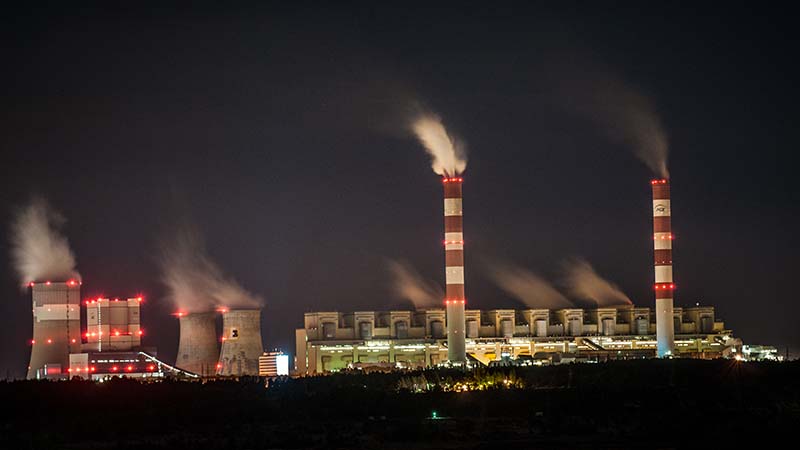Poland is seeking EU support for new coal plants before it will ratify the Paris climate agreement.
The environment ministry on Monday called for financial guarantees for investment in coal capacity.
This stance clashes with EU climate policy goals, not least the bloc’s commitment – reaffirmed at the recent G20 summit – to phase out fossil fuel subsidies.
Warsaw’s attachment to the polluting fuel has long been a source of tension with Brussels. Now, it risks delaying the EU’s formal joining of the Paris pact, which can only be completed when all member states do their homework.
The EU is already lagging behind the US and China, which inked the formalities on Saturday. Others have pledged to follow swiftly, making it likely the deal will enter into force in 2016, passing the double threshold of 55 countries representing 55% of global emissions.
Weekly briefing: Sign up for your essential climate politics update
Wendel Trio, director of Climate Action Network Europe, described the move as “blackmail”.
“It is unacceptable that the Polish government wants to link different files with each other,” he told Climate Home.
“In a way, it only shows the dire straits that the Polish government is in to support its loss-making coal industry. They desperately want to allow both burning and producing coal but they know it is not economically viable.”
Dependent on coal for around 90% of its electricity, Poland is protective of its mining sector. It has intervened extensively to rescue Polish coal businesses struggling with low prices in recent years.
The government’s statement was unapologetic. “Poland needs to build new power units. Coal will remain the primary source of energy for many years, ensuring energy security,” it said.
“After Poland called the Paris Agreement a success, the statement might be seen as highly surprising,” said Julia Michalak, analyst at the Polish Institute of International Affairs.
In a recent bulletin, she urged the government not to ignore EU climate goals as it draws up a 2050 energy strategy. Otherwise, she warned, it risks facing legal challenges through the EU Court of Justice.
“Discrepancies between national and EU climate and energy legislation would also mean rising and significant uncertainty for investors,” Michalak added.
“As the Polish energy sector requires urgent upgrades, this is the right moment to synchronise Polish energy policy with the EU’s climate policy framework.”
It is not clear exactly what kind of extra support Poland hopes to secure. The country already gets concessions within the EU climate policy framework, including less demanding emissions targets and free carbon allowances for power generation.
Its lobbying efforts have seen EU “modernisation funds” go to upgrade fossil fuel infrastructure rather than developing clean alternatives.
The EU is committed to cutting emissions 40% from 1990 levels by 2030. While Poland would struggle to reopen the main planks of the package, some details are still up for negotiation.
This could include continuing to allow revenues from the carbon market to go to coal infrastructure, for example – an option some member states want to ban.
Another avenue for Poland could be an exemption from EU state aid rules against subsidising coal mines, CAN’s Trio speculated.
But he questioned whether Brussels would be prepared to give any ground, given Warsaw’s aggressive tactics. “I think there will be even more reluctance from EU officials to give in to Poland,” he said.
